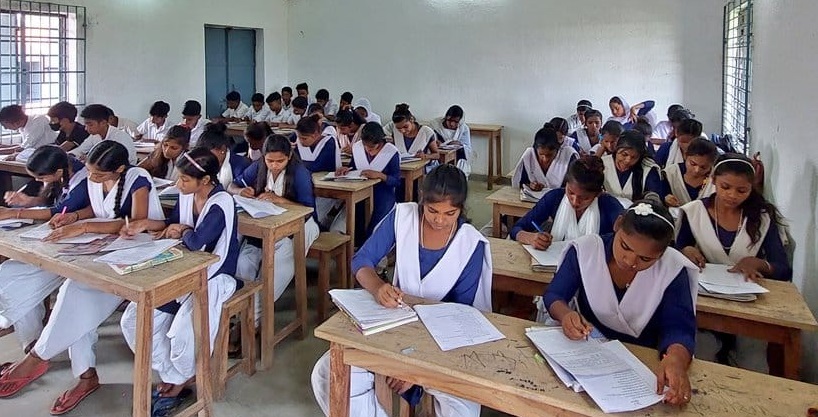Bihar’s Daughters Can Now Continue Education Even After Marriage: New Education Policy Introduced

Patna: In a significant move to empower women, the daughters of Bihar will no longer have to abandon their education after marriage. Thanks to the newly introduced education policy, they will now be able to complete their graduation, regardless of their marital status. This policy allows them to pause and resume their studies as needed, ensuring that marriage does not become a barrier to their education.
The new policy, implemented under the National Education Policy (NEP), offers the flexibility of multiple entry and exit for students pursuing undergraduate and postgraduate degrees. This initiative has been rolled out in all universities across Bihar, including BRA Bihar University, where efforts are underway to create Academic Bank of Credit (ABC) IDs and Digi Lockers for students, allowing seamless transitions in their education journey.
The policy allows students who get married after starting their graduation to take a break and continue their education at a later stage. If a woman relocates to another state due to marriage, she can complete her remaining education from a university or college in that state. The credits earned before marriage are safely stored in her academic bank, which can be transferred to the new institution.
This flexibility is especially beneficial for women who often face societal and family pressure to marry at the age of 18, soon after completing intermediate studies. The option of transferring credits and resuming education offers them a way to balance family life and education.
Radhika, a resident of Muzaffarpur, enrolled in a local college after completing her intermediate education. However, her family arranged her marriage before she could finish her degree. By the time she moved to Gujarat with her husband, she had only completed one semester of her graduation. Unfortunately, she could not appear for her second-semester exams due to her husband’s work commitments and the distance from home.
Radhika’s case is not unique. Thousands of young women in Bihar face similar challenges, where marriage interrupts their educational aspirations. The new policy provides a lifeline, allowing them to continue their studies without losing the credits they’ve already earned.
The new policy aims to address the root causes that force many women to leave their education incomplete. A recent UNICEF survey highlights alarming statistics:
33% of girls drop out to take up household work.
25% leave education due to early marriage.
Many girls also leave school to support their families as laborers or house cleaners.
In some cases, parents force girls to quit school as they age, citing social and familial obligations. The birth of a child often adds another layer of responsibility, forcing many women to leave their education behind to care for their families.
The new education policy also offers the opportunity for students to transfer between universities, even in different states, after completing one, two, or three years of study. This feature ensures that no matter where life takes a student, her education doesn’t have to stop.







